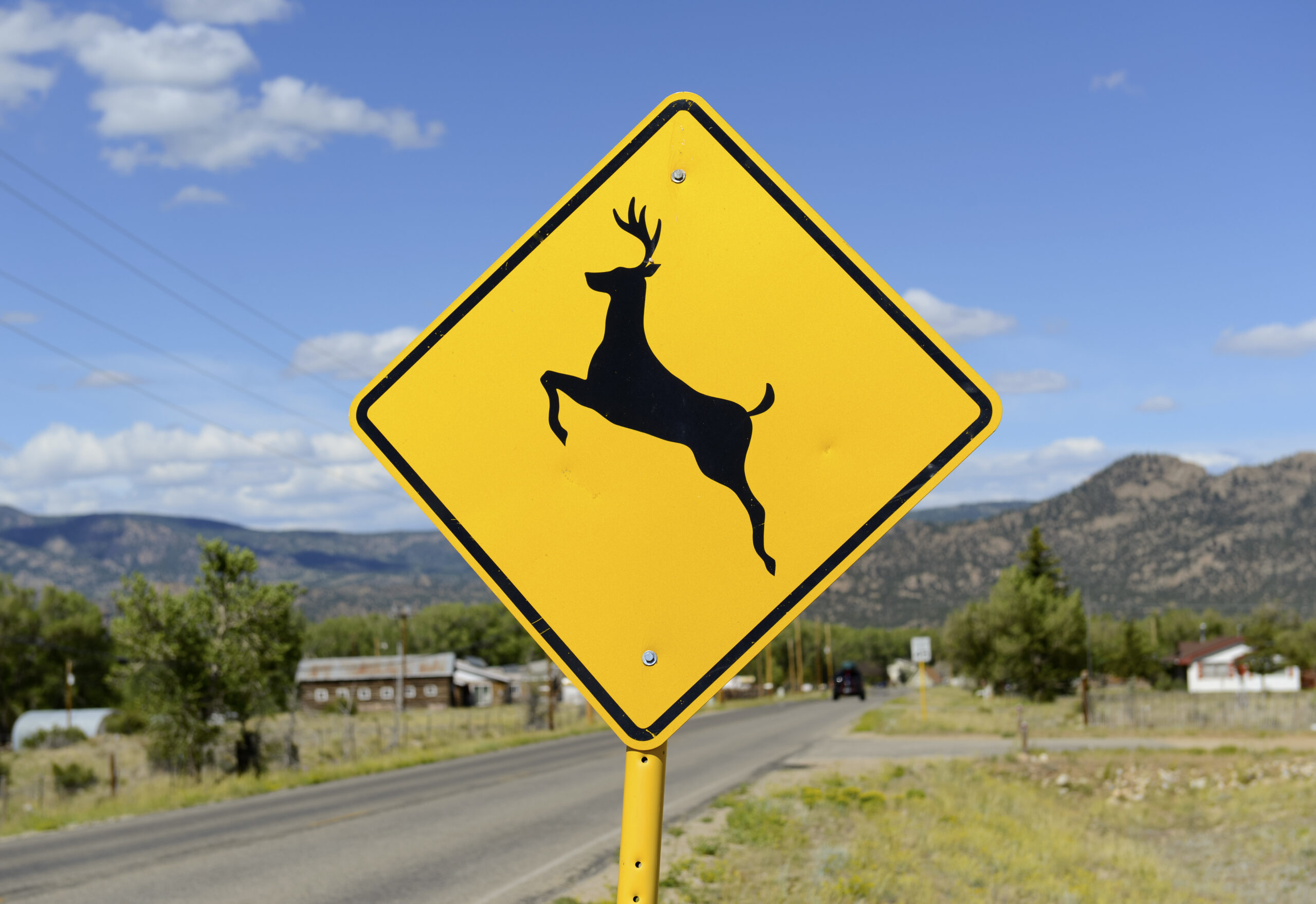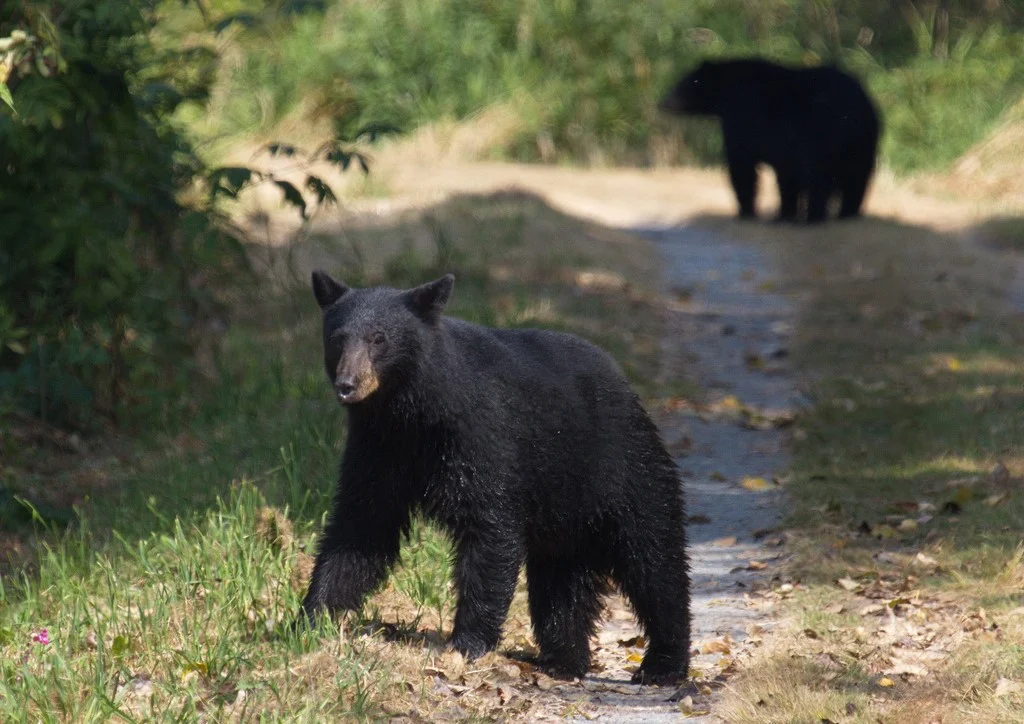Bears, when left alone, can be fun to watch. Check with local rangers about their recommendations for where bears can be seen safely. Take a zoom lens. If, for any reason, the bear seems uncomfortable with your presence, it’s best to quietly make your exit and move away from their area. Never attempt to feed them, or draw them nearer. Even seemingly docile black bears are massive and unpredictable when provoked (though it’s rare).
Rangers at Yellowstone keep visitors at a safe distance as black bears cross road.
Campgrounds in bear country are typically equipped with bear resistant trash bins. The trash goes in, but the bears can’t get it out. This helps with one major issue, but campers are notorious for thinking that putting the food “away” is enough. If bears can smell it, they may attempt to get to it. At the very least, any food not being currently eaten should be stored inside your vehicle, or hard-sided RV. In heavily bear populated areas, parks often offer bear proof food storage for use by campers. If they do, use it!
Bear proof trash bins are available in most parks where bears live.
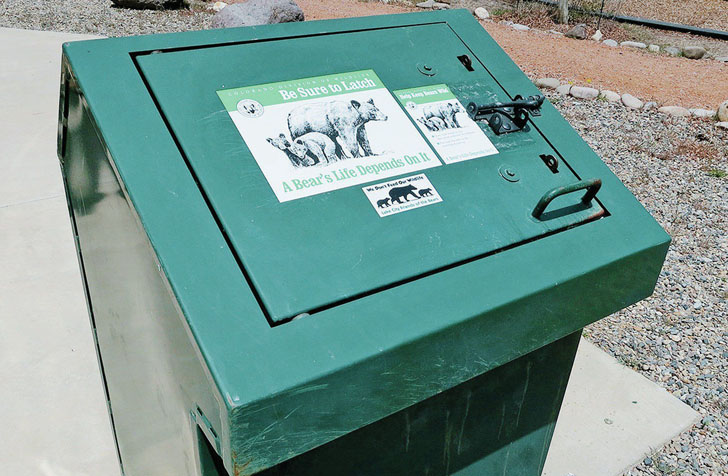
This car had a small black bear visitor and was nearly destroyed.
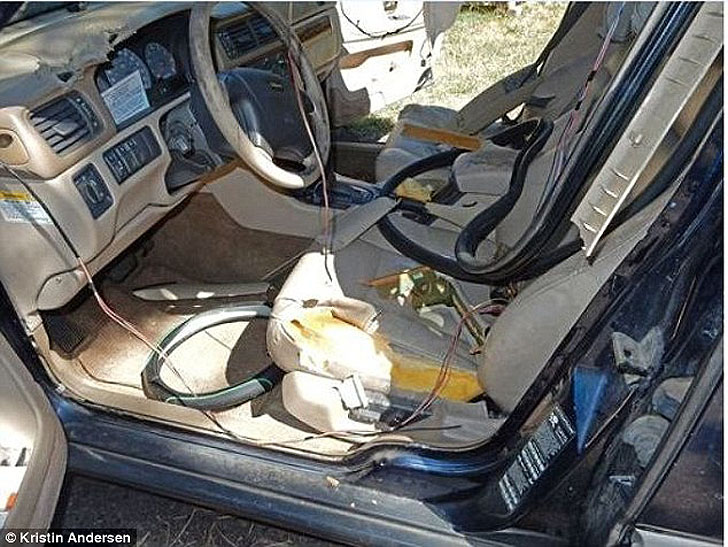
While many avid outdoors people avoid bear country entirely, even Grizzly bear habitats can be safely traveled if some common sense procedures are followed. Always check with park rangers about bears in the area, places to avoid and behaviors you should not engage in. Watch for bear scat and tracks on the trail and avoid areas with obvious signs. Stay away from food sources, such as fish-rich streams and berry patches – and do not carry any strongly scented food, drinks, or personal products on the trail.
Know a grizzly when you see one – and avoid them!
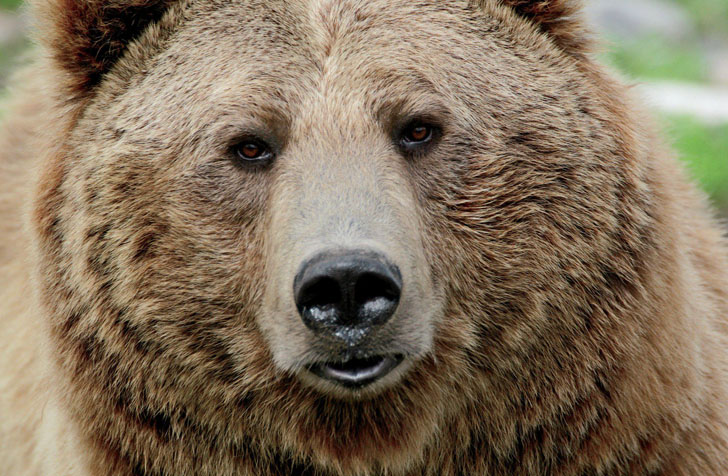
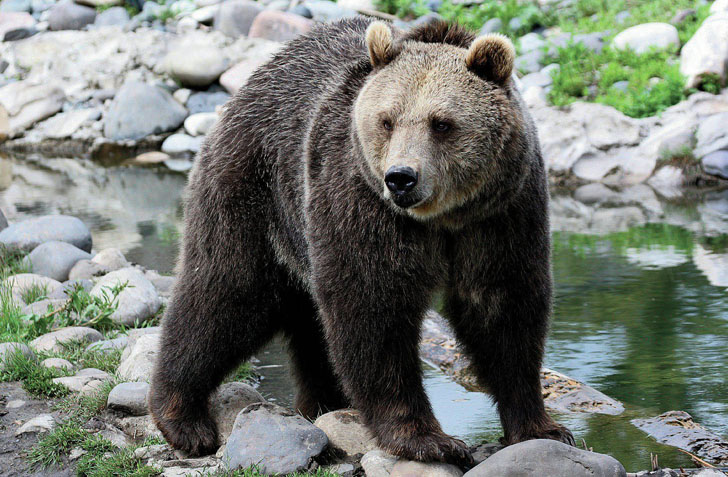
This Cinnamon bear is often mistaken for a grizzly.
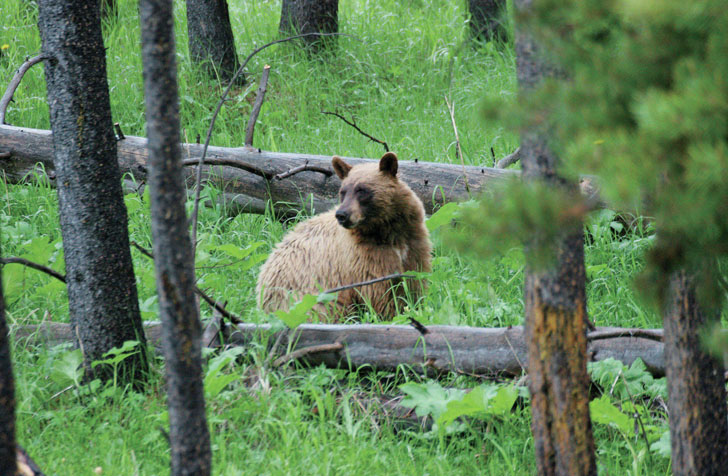
Like most wild animals, even large predatory bears prefer to avoid human interaction. When spending time in bear country, don’t be shy. Especially when hiking, but any time you move about, make some noise. Talk, don’t bother with stalking quietly, if you suspect a bear is nearby, even noise makers or whistles can be useful. Most hikers never see bears because they prefer to remain hidden and left alone.
Bear spray is the best way to back a bear down.
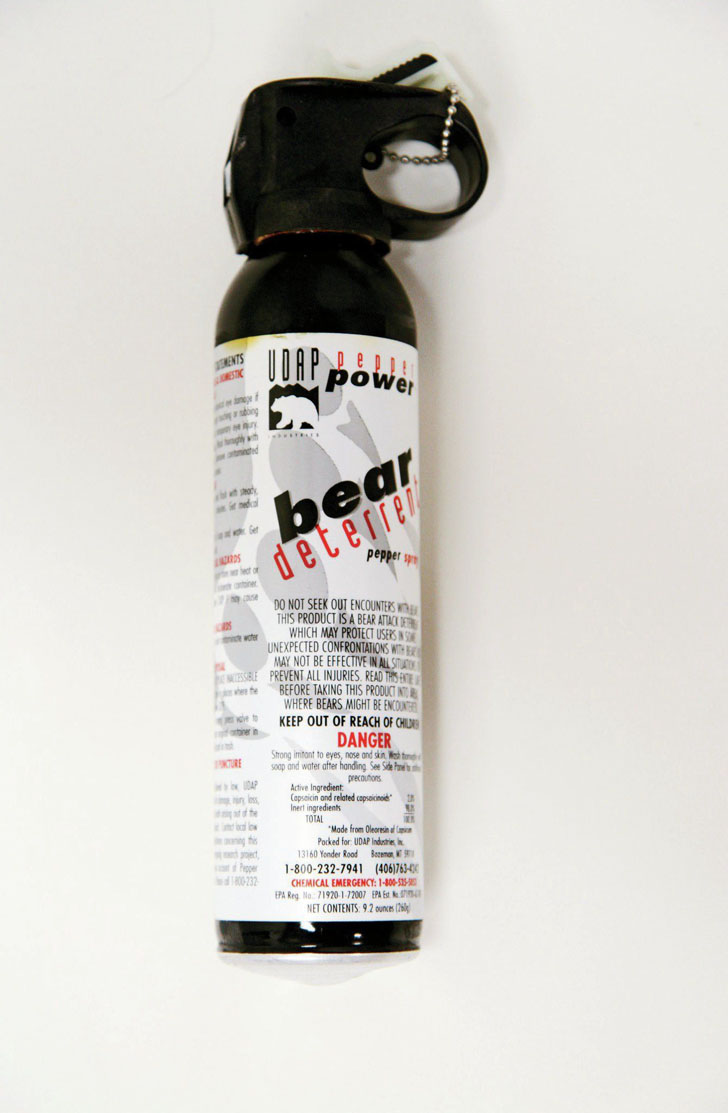
Essentially an industrial grade pepper spray, bear spray is your best chance of scaring a bear away if you should happen to encounter one up close. Rather than keep it tucked away at the bottom of your day pack (just like pepper spray for urban defense) it only helps if you can get to it when seconds count. Make sure you are prepared and properly trained in its use. This includes actually having fired it at least once before the opportunity presents itself with a real bear.
Black bear cubs are great climbers and fun to watch.
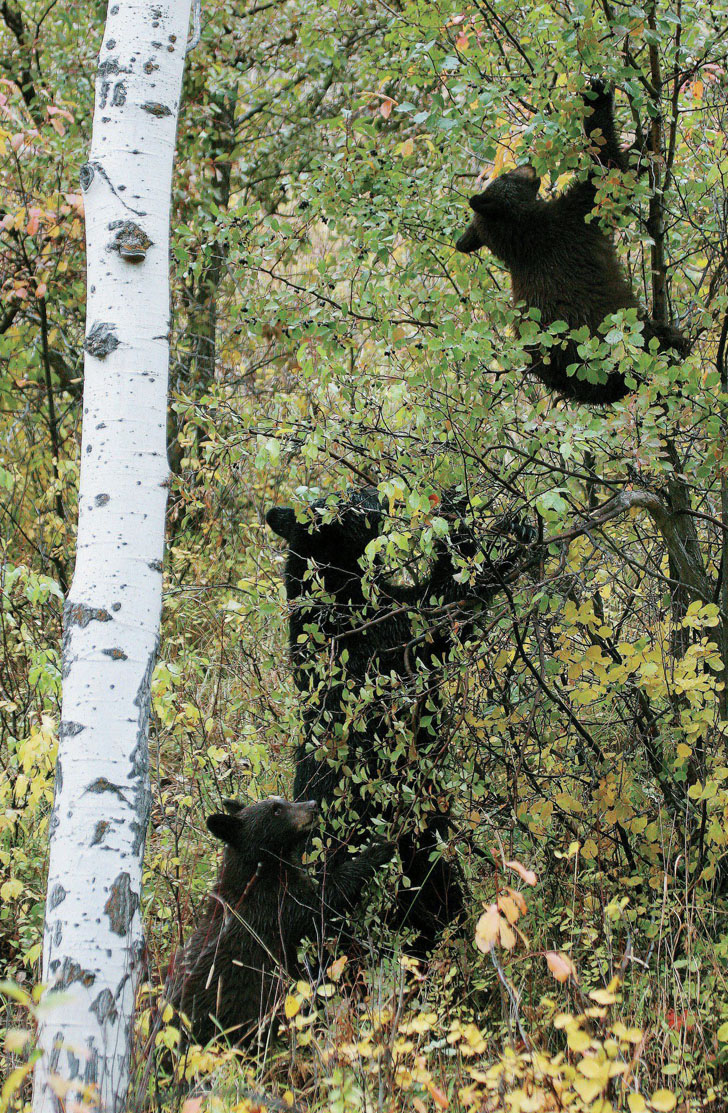
While it may sound like an old wives’ tale, Yellowstone National Park is one of the heaviest populated bear habitats in North America and a study of camper bear encounters shows that 75% of all campers who simply played dead when charged by a bear suffered only minor injuries. While a 25% chance of being seriously injured or worse may seem unacceptable, experts say that attempting to fight back will only prolong the encounter and is highly likely to result in serious injury, or death. Fall to the ground and remain as still and quiet as possible until the bear has lost interest and left the area.

